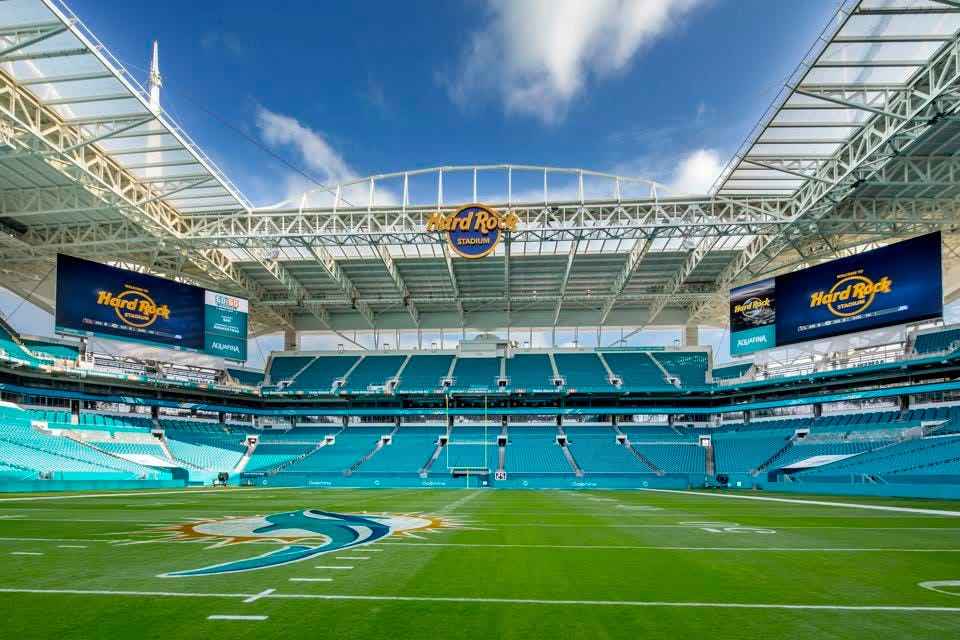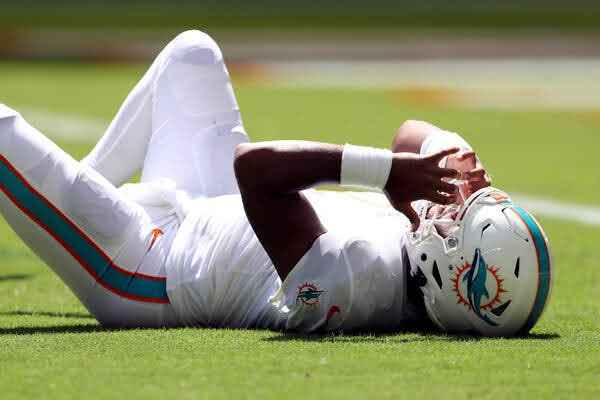At last Sunday’s Miami Dolphins game against Buffalo, quarterback Tua Tagovailoa’s head collided with the ground. He also seems to have suffered a head injury during Thursday’s game.

A neurologist who treated Miami Dolphins quarterback Tua Tagovailoa after Tagovailoa suffered a head injury during a game against the Buffalo Bills last Sunday has been fired by the NFL Players Association. Tagovailoa was permitted to play again in that match, but four days later, he was taken off the field during a game due to what appeared to be a second head injury.
The firing occurred just hours before the NFL and the players’ union declared on Saturday that they were working to change the league’s concussion protocol, maybe in a few days.
Two persons with knowledge of the union’s decision said that it “exercised its right” to remove the physician who had counseled the Dolphins’ team doctor during Tagovailoa’s evaluation last Sunday. The physician was referred to as a “unaffiliated neurotrauma consultant.” According to one account, the outside physician was dismissed for violating the concussion protocol, which led to Tagovailoa’s original diagnosis that he did not have a concussion and his return to play a few days later. The physician was approved by both the N.F.L. and the union.
The doctor, whose identity has not been made public, was fired two days after Tagovailoa was carted off the field on a stretcher after taking a second blow to the head during the Dolphins’ game against the Cincinnati Bengals on Thursday. The prime-time injury sparked a heated discussion about whether the Dolphins had broken the concussion protocol during the game on Sunday.
The players’ union announced shortly after the event on Sunday that it had started an investigation into how medics evaluated Tagovailoa’s condition following his head colliding with the turf during the Dolphins’ home game against the Bills in the second quarter. The investigation is being conducted in conjunction with the league.
Following the play’s conclusion, Tagovailoa tried to stand up and fell after taking a few steps. He sought for his helmet with his hands. To have him assessed, they led him to the changing area.
The league and the union created the concussion protocol, which states that a player cannot return if a team physician concludes that the player’s “gross motor instability” was “neurologically caused” “in consultation with” an independent neurologist. The player’s diagnosis is subject to final approval by the team doctor.
When Tagovailoa was being assessed for a potential head injury last Sunday, the Dolphins first made that announcement during the game. The quarterback returned for the second half despite later reporting that he had back and ankle injuries.
Dr. John Uribe, an orthopedist who also serves as the team physician for the N.H.L. Florida Panthers, is the head physician of the Dolphins. It’s unclear who decided in the end to let Tagovailoa play again against the Bills—Dr. Uribe or another team physician.
There was “every indication,” according to an N.F.L. official on Wednesday, that Tagovailoa’s physicians had adhered to the league’s concussion protocol. However, the league and the players’ union stated in a joint statement on Saturday night that no findings about any protocol violations or medical errors had yet been reached by the investigation. They added that talks were in progress to change the concussion protocol in the coming days, with a focus on the word “gross motor instability.”
The goal of the investigation is to ascertain “whether a breach occurred and, if so, the proper disciplinary response.” It should not take longer than three weeks. An arbitrator will hear the case if the league and union cannot agree on whether the protocol was broken.
At every NFL game, neurological experts are on duty to support team physicians in the event that a player is suspected of having suffered a head injury. These neurologists are usually employed by hospitals in the city of the home team. Dr. Thom Mayer, the medical director of the NFL Players Association, and Dr. Allen Sills, the league’s senior medical officer, have given their approval.
According to the NFL’s concussion protocol, team doctors, not independent neurologists, are the ones who ultimately decide whether or not players have had concussions and if they may return to the field. For this reason, the union’s decision to fire the neurologist may only have symbolic value.

The protocol uses the acronym for traumatic brain injuries to state that “for the avoidance of doubt, the responsibility for the diagnosis of concussion and the decision to return a player to a game remains exclusively within the professional judgment of the head team physician or the team physician assigned to managing T.B.I.”
A neurological consultant may “present his/her own questions or conduct additional testing and shall assist in the diagnosis and treatment of concussions,” under the collective bargaining agreement of the NFL.
Leave a Reply